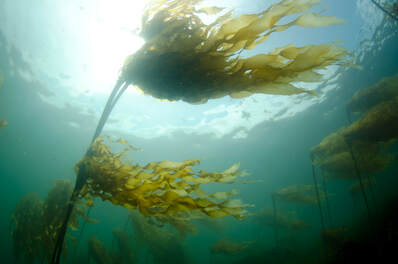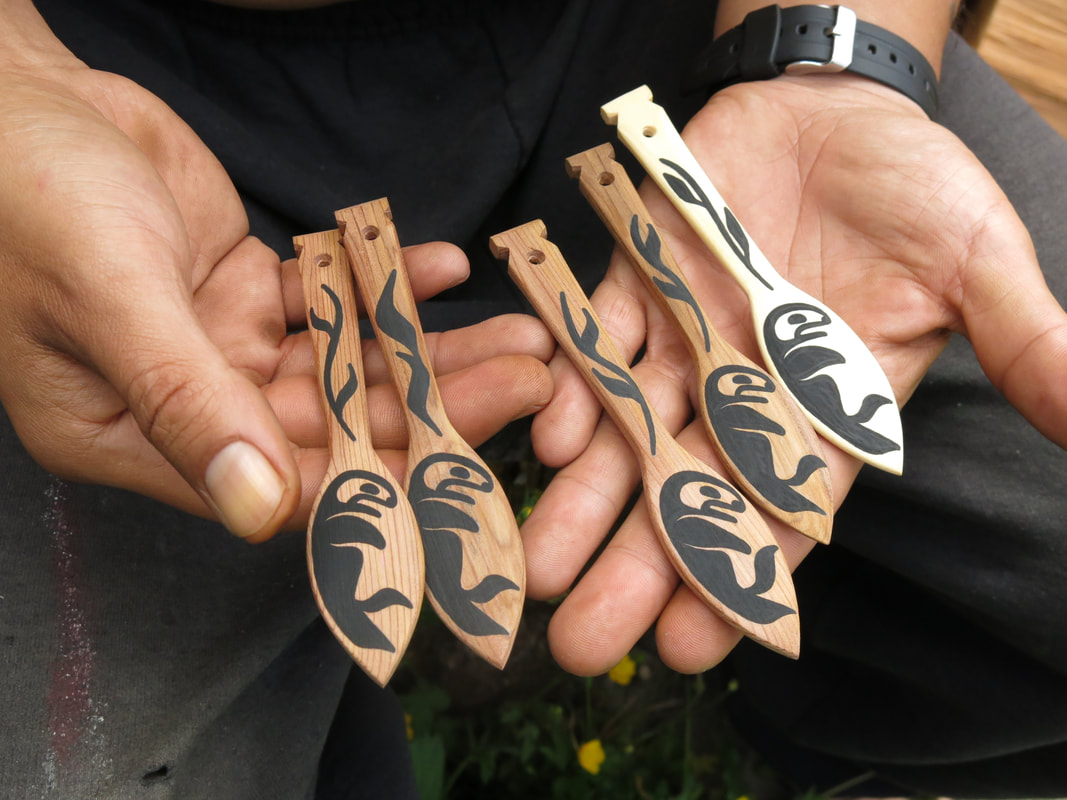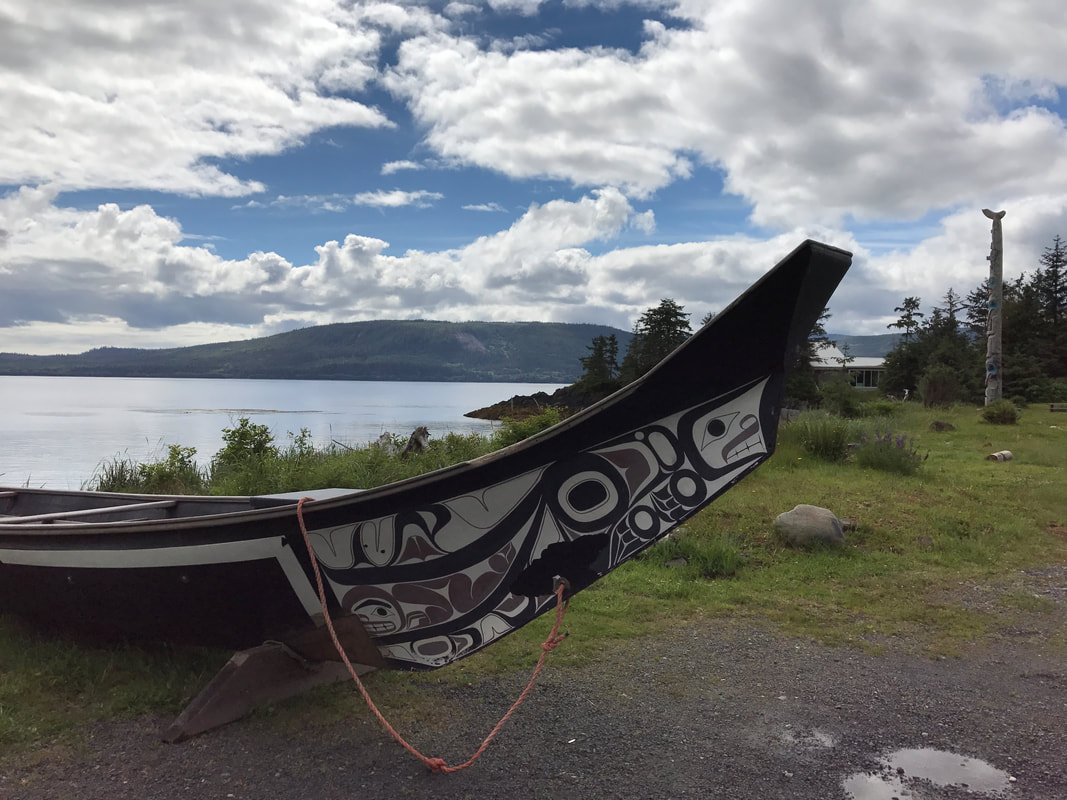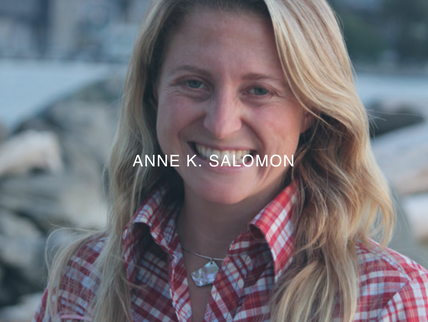LANDSCAPE OVERVIEW
|
Along the Pacific coast of Canada, predator recovery, climate change, and commercial fishing are transforming coastal ecosystems at an accelerating pace, while centralized ocean governance regimes are constraining local Indigenous communities’ food security, food sovereignty and ability to adapt. For example, the recovery of sea otters,
|
Navigating these trade-offs and finding solutions that can sustain resilient fisheries, food systems, and ecosystems while supporting thriving coastal communities and equitable decision making requires conservation and management solutions be co-produced with Indigenous rights holders, managers, and resource users.
BROAD RESEARCH GOAL
|
Our research assembles traditional, archaeological, and ecological knowledge to examine how the application of Indigenous governance principles, ancestral hunting practices and mariculture technologies, such as clam gardens, may affect coastal fisheries, food and nutritional security, sea otter population persistence and ecosystem considerations such as kelp forest fish habitat, carbon sequestration, and coastal erosion protection, while accounting for climate change.
|
BROAD MANAGEMENT GOAL
Our hope is that this research informs evidence-based policy decisions surrounding sea otter management and recovery goals, kelp forests and Indigenous food security and nutritional health.
APPROACH
We bring Indigenous knowledge holders and rights holders, scientists, and managers together in a series of Listening Circles to learn about Indigenous ocean governance principles and ancestral sea otter management strategies. Our recent workshops allow us to do participatory scenario mapping to reimagine current management and the kinds of futures Indigenous communities want.
These transdisciplinary gatherings, along with semi-directed interviews, allow us to build a spatial thinking tool (model) to examine the implications of alternative sea otter hunting and mariculture scenarios on shellfish catch, Indigenous food and nutritional security, kelp forest fish habitat, carbon sequestration, coastal erosion protection and sea otter populations themselves. These tools include projections of future climate change and an understanding of past climate change owing to a paleothermometer we are developing based on archeological faunal remains from over 6,000 years of fish catches.
Structured decision-making will help managers navigate trade-offs among coastal fisheries, sea otter populations, kelp forest fish habitat, carbon sequestration, coastal erosion, food security and nutritional health.
These transdisciplinary gatherings, along with semi-directed interviews, allow us to build a spatial thinking tool (model) to examine the implications of alternative sea otter hunting and mariculture scenarios on shellfish catch, Indigenous food and nutritional security, kelp forest fish habitat, carbon sequestration, coastal erosion protection and sea otter populations themselves. These tools include projections of future climate change and an understanding of past climate change owing to a paleothermometer we are developing based on archeological faunal remains from over 6,000 years of fish catches.
Structured decision-making will help managers navigate trade-offs among coastal fisheries, sea otter populations, kelp forest fish habitat, carbon sequestration, coastal erosion, food security and nutritional health.
OUR JOURNEY; PAST, PRESENT, AND FUTURE
|
For the past 7 years, with the consent and guidance of Nuu-chah-nulth, Heiltsuk and Haida Hereditary Chief Councils and stewardship offices, we have been working together to gather traditional knowledge and scientific information on the social-ecological effects of recovering sea otter populations, a well recognized shellfish predator and major architect of marine ecosystem change (see CoastalVoices.net).
In the next phase of our journey, with support from ResNet and links to sister grants, we aim to deepen the relevance of this research with the involvement of aquatics managers from Coastal First Nations - Great Bear Initiative and Uu-a-thluk, while expanding our research breadth with talents from our growing research family who bring expertise in Indigenous health, climate modelling, ocean governance and structured decision-making. |
Our Governance: Our Hereditary Chief Steering Committee guide our research questions and deliverables to ensure that our research meets the management needs and priorities of the Nations to support informed natural resource decision-making and stewardship.
CHALLENGES FACING CANADA'S PACIFIC COASTAL INDIGENOUS COMMUNITIES
Research Challenges:
1. Weaving diverse ways of knowing; from ecological, archaeological and social science data, to Indigenous knowledge, and using diverse methods; from state-of-the art modelling, decision analysis and scenario planning to story-telling and Listening Circles.
2.Working across spatial scales and incorporating climate uncertainty, ecological and social processes; scaling-up local case studies and empirical data to make locally and regionally relevant models and predictions.
3. Creating empirical models and informing alternatives that are equitable, just and reflect Indigenous worldviews and management goals.
4. Testing the social-ecological effects of ancestral mariculture and hunting practices.
Management Challenges:
1. Incorporating plurality in ocean governance and management to create more equitable decision making processes that uphold Indigenous objectives, laws and rights.
2. Linking disparate fisheries reconciliation and marine spatial planning initiatives currently underway with federal, provincial and Indigenous governing agencies and developing adaptive co-management institutions and processes with strong legitimacy and inclusivity.
3. Matching the scale of management with the nested scales of the ecological and social processes affecting key fisheries, carbon sequestration, coastal erosion, and fish habitat all of which support Indigenous community health and well-being.
4. Navigating trade-offs among diverse fisheries and coastal ecosystem processes given the disparate objectives and power asymmetries among actors.
1. Weaving diverse ways of knowing; from ecological, archaeological and social science data, to Indigenous knowledge, and using diverse methods; from state-of-the art modelling, decision analysis and scenario planning to story-telling and Listening Circles.
2.Working across spatial scales and incorporating climate uncertainty, ecological and social processes; scaling-up local case studies and empirical data to make locally and regionally relevant models and predictions.
3. Creating empirical models and informing alternatives that are equitable, just and reflect Indigenous worldviews and management goals.
4. Testing the social-ecological effects of ancestral mariculture and hunting practices.
Management Challenges:
1. Incorporating plurality in ocean governance and management to create more equitable decision making processes that uphold Indigenous objectives, laws and rights.
2. Linking disparate fisheries reconciliation and marine spatial planning initiatives currently underway with federal, provincial and Indigenous governing agencies and developing adaptive co-management institutions and processes with strong legitimacy and inclusivity.
3. Matching the scale of management with the nested scales of the ecological and social processes affecting key fisheries, carbon sequestration, coastal erosion, and fish habitat all of which support Indigenous community health and well-being.
4. Navigating trade-offs among diverse fisheries and coastal ecosystem processes given the disparate objectives and power asymmetries among actors.
EXPECTED OUTCOMES
- Improve Indigenous involvement in decision making
- Maintain resilient future shellfisheries and sea otter populations
- Support authentic adaptive co-management institutions and processes
OUR RESEARCH VALUES, PRINCIPLES, AND COMMITMENTS
As a research team, we have committed to co-producing research with our Indigenous research partners and follow the First Nations Principles of OCAP® - data Ownership, Control, Access, and Possession, the United Nations Declaration on the Rights of Indigenous Peoples, and the research values of humility, respect, reciprocity, justice, and courage.
To honour this commitment, we have distinctive responsibilities and obligations as researchers. We identified specific principles and actions that we will uphold and have shared them with our First Nations research partners. By laying these out we can hold ourselves accountable and create transparency in our valued and longstanding research relationships. These commitments fall broadly into the following:
I. We Recognize First Nations as the Original Rights Holders of the Land and Honour Their Authority as Decision Makers by Engaging With the Nations’ Leadership & Seeking Their Consent in the Work That We Do.
II. We Will Research ‘In a Good Way’ (eg. By Following Cultural Protocols)
III. We Will Share Data and Respect Diverse Sources of Intellectual Property
IV. We Will Honour Diverse Sources of Knowledge in Publications and Presentations
V. We Will Regularly Report Our Findings and Create Opportunity for Feedback
VI. We Will Involve Community
As a research team, we have committed to co-producing research with our Indigenous research partners and follow the First Nations Principles of OCAP® - data Ownership, Control, Access, and Possession, the United Nations Declaration on the Rights of Indigenous Peoples, and the research values of humility, respect, reciprocity, justice, and courage.
To honour this commitment, we have distinctive responsibilities and obligations as researchers. We identified specific principles and actions that we will uphold and have shared them with our First Nations research partners. By laying these out we can hold ourselves accountable and create transparency in our valued and longstanding research relationships. These commitments fall broadly into the following:
I. We Recognize First Nations as the Original Rights Holders of the Land and Honour Their Authority as Decision Makers by Engaging With the Nations’ Leadership & Seeking Their Consent in the Work That We Do.
II. We Will Research ‘In a Good Way’ (eg. By Following Cultural Protocols)
III. We Will Share Data and Respect Diverse Sources of Intellectual Property
IV. We Will Honour Diverse Sources of Knowledge in Publications and Presentations
V. We Will Regularly Report Our Findings and Create Opportunity for Feedback
VI. We Will Involve Community
FOR RESEARCH QUESTIONS, PLEASE CONTACT:
Anne K. Salomon, Simon Fraser University
[email protected] - 778-782-8739 - www.cmeclab.com - www.coastalvoices.net - Twitter:@AnneKSalomon
[email protected] - 778-782-8739 - www.cmeclab.com - www.coastalvoices.net - Twitter:@AnneKSalomon
LANDSCAPE 6 TEAM LEAD
LANDSCAPE 6 TEAM
PARTNER ORGANIZATION
FEATURED PUBLICATIONS
Coming Soon!
In the meantime, check out our Zotero library.





























